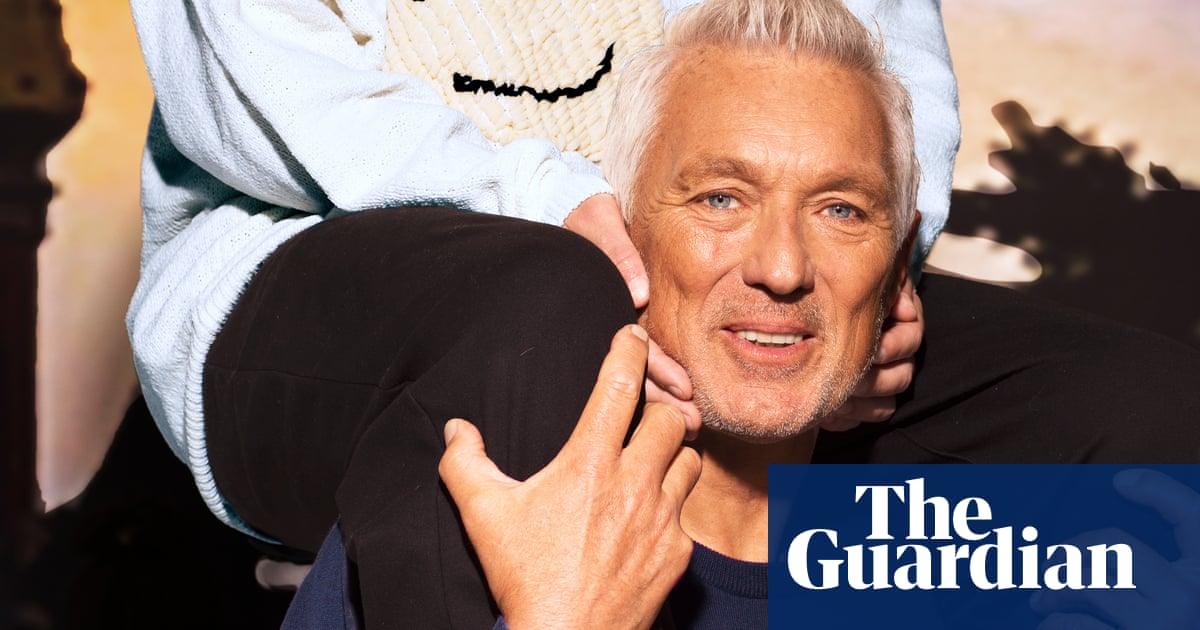
There was always one thing I was sure of – I’d not let Mum go into a care home or be looked after by a stranger. Marje has always been a brilliant mother, forever loyal when others wrote me off. So come the day when she tired of living by herself in Salford, or couldn’t cope, I’d be there for her.
I assumed she would come to live with me – or my sister Sharon – in London. She could stay in our house, or we could build her a granny flat. We’d even allow her to live in a flat nearby so long as we could pop in every day and take care of her.
There was only one problem with my plan – I hadn’t thought about what she wanted. Just tiny things, like her house, her friends, her independence.
Marje is 93 now. Until last year she was in great nick. Although she was a shrunken version of her younger self, she was still warm, kind, curious, laugh-out-loud funny and fiercely independent. But earlier this year, she slipped on her bathroom floor and broke her femur. Somehow, she crawled back to her bedroom to call us. The ambulance came, she was operated on and there followed a lengthy stay in hospital.
Suddenly, she seemed much older – almost her real age. She couldn’t move, she lost weight, she got infections that sent her potty. Her short-term memory was shot and she couldn’t focus. She was unhappy and in pain. After a few weeks in hospital, Marje was transferred to a rehab home. She lay in bed or sat in a chair and deteriorated even more.
Still, she insisted she didn’t want to come stay with us in London afterwards. She wanted to return to her own home and get on with life. She was terrified of being a burden; of being unwanted. But there was more to it than that. Marje loved her mews house in the close that reminds me of a mini-Brookside. It was perfect for her – tiny, quiet, self-contained. She was part of the community she’d spent her entire life in (a five-minute walk from where she grew up and where she spent her married life). And her few remaining friends (invariably younger than her) meant a lot to her. London isn’t her city, and never could be. It’s where she used to come to visit family and have a break.
Eventually, I accepted she wanted to stay put. So, with a degree of horror, I started talking to my sister about a full-time carer for Marje. What kind of children farm out their mother to a carer? Was this how I returned the love she had shown me? Why spend all her money on the care we should provide? What if she and the carer didn’t get on? What if the carer abused her? Sharon assured me the woman she had in mind came recommended. I trusted her and we all took the plunge.
Enter Josie – small, smart, smiley, funny, kind. In other words, she’s very much like Marje.
Josie has now been with her for three months, and Marje is totally transformed. She is learning to walk again, her short-term memory has improved, she has put on weight because Josie’s food is so delicious.
And, for the first time, Marje has accepted that she can’t do everything for herself; that she’s reached an age where she’s earned the privilege of relaxing – watching TV, reading, listening to music, going for wheelchair walks when she’s got the strength. Josie cooks for her, helps her shower, sorts out her pills, deals with the nitty-gritty of running the house.
But the most astonishing and beautiful thing is the relationship she and Josie have developed. They sit on the sofa together, chat and giggle. Josie tells Marje about her childhood in the Philippines, her children and grandchildren, the 21 years she spent in Madrid working for a famous singer and the time she cooked for Plácido Domingo. Marje talks to Josie about her children and grandchildren, and the years she spent teaching children with special needs. Josie tries to teach her a bit of Spanish. Marje tries to improve her tenses in English.
Josie takes pictures of her, and sends us nice or funny ones. In one, she is wearing a fake fur coat, shades and is scowling – she looks like the angriest billionaire in Salford. (She isn’t angry or a billionaire.)
Already, they are like mother and daughter, or sisters. Visitors occasionally pop in. Marje is glad of the visit, but she’s often relieved when they leave and it’s just her and Josie again. Josie feels as much family as Sharon and I do. Sometimes more.
Josie is a full-time, live-in carer, five days a week. (On the other two days Josie’s daughter-in-law Marlene, who is also becoming like family, looks after Marje.) Often, Josie doesn’t bother going home on her days off; she simply does more of her own thing.
Just a few weeks ago, Mum was frazzled. Now she is calm, secure and on the whole content. It was stupid of me to think I could ever look after Marje like Josie and Marlene do. I don’t have their patience or skill set. In a way, it was selfish – more about a misplaced sense of duty than what was best for her – and could have ended up imprisoning Mum. Instead, thanks to Josie and Marlene, Sharon and I have peace of mind, and Marje has been given a new life.
Simon Hattenstone is a Guardian columnist












